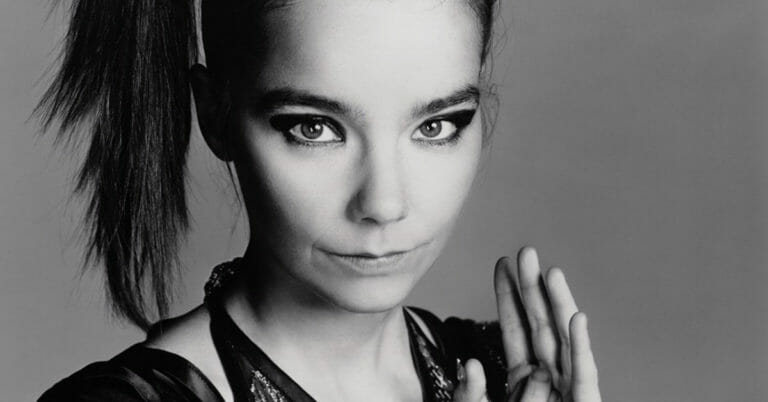By Clare Nina Norelli · April 3, 2018

Like many other facets of filmmaking, women are severely underrepresented when it comes to the practice of film scoring. An investigation from 2014 for example, found that women comprised only 1% of all composers that worked on the top 250 films of that year. Female film composers are out there, but they are afforded fewer opportunities than their male counterparts and, unlike the immensely popular Hans Zimmer or John Williams, prominent female film composers are still difficult for the average cinemagoer to name. There are many female film composers who have contributed beautiful, often under-recognized scores to film as well as produced wonderful music outside the form. Here are a few of them.
Polish composer Joanna Bruzdowicz began writing music at the age of six and has since produced a rich array of contemporary classical works. Bruzdowicz has written music for numerous films, but her most notable film music work has been in collaboration with Agnes Varda, the celebrated French writer and director. Bruzdowicz’s string-based music for Varda’s brilliant Sans toit, ni loi (Vagabond) (1985) is cool and mournful, perfectly underscoring the emotional state of Varda’s haunted protagonist Mona.
Rachel Portman is, in the most general sense, the most celebrated female film music composer. In 1996 she won the Oscar for Best Musical or Comedy Score for her work on Emma, the first win by a woman for best score in the entire history of the Academy Awards. She then went on to be nominated for The Cider House Rules (Hallström, 1999) and Chocolat (Hallström, 2000). Portman has proved to be a composer with a great capacity for emotional resonance. Her score for the dystopian love story Never Let Me Go (Romanek, 2010) for example, is especially heart wrenching , ebbing and flowing to match the grief of the film’s central protagonists as they learn of their devastating fates.
Mica Levi (also known as Micachu) is an English composer and avant-pop artist who made a big impression with her score for Jonathan Glazer’s 2014 sci-fi chiller Under the Skin. Her score for the film is full of unnerving, manipulated string writing that alternates between chaotic screeching and slinky slithering depending on the on-screen activities of the film’s extraterrestrial succubus. After Under the Skin, Levi worked on a less abrasive but still string-heavy score for the biographical drama Jackie (Larraín, 2016), which garnered her a nomination for best original score at the 2017 Academy Awards.
Björk is best known for her stunning, idiosyncratic vocals and an extensive catalogue of music that draws its influence from everything from the music of her native Iceland, classical, jazz, electronica and beyond. In 2000 she starred in and wrote the music for Dancer in the Dark (von Trier, 2000). In the film she delivers an incredibly powerful performance as Selma, a factory worker suffering from a degenerative eye condition who escapes the drudgery of her life by daydreaming that she is taking part in big Hollywood musical numbers. Bjork’s score includes ambient noise from Selma’s surroundings (including factory machinery and trains) that merge with her lush orchestrations. This sonic dichotomy reflects that Selma is caught between two worlds: that of her pained existence and that of her imagination.
A legend in electronic music circles, Wendy Carlos is best known for her landmark album of 1968, Switched-On Bach (released under her name at birth, Walter Carlos). Carlos is best known in cinema for her work with Stanley Kubrick, with whom she collaborated alongside musician, composer and producer Rachel Elkind. In the early 1970s, Carlos and Elkind first worked for the director on A Clockwork Orange (1971), contributing their signature electronic arrangements of classical works such as Rossini’s “The Thieving Magpie” and “William Tell Overture,” as well as an excerpt from a fascinating original composition by Carlos, “Timesteps.” For Kubrick’s 1980 horror film The Shining, the pair had a smaller role on the film’s soundtrack, but their spine-chilling arrangement of the ominous “Dies Irae” (a centuries-old hymn) effectively sets the tone of dread in the film’s opening credits.
LISA GERRARD
ANNE DUDLEY
EBBIE WISEMAN
ANGELA MORLEY
DELIA DERBYSHIRE
LESLEY BARBER
DIREEN MARY CARWITHEN (MARY ALWYN)
See also: https://en.wikipedia.org/wiki/List_of_female_film_core_composers
 Clare Nina Norelli is a composer, musician, teacher and writer. She currently writes Scores on Screen, a column on film music for MUBI’s Notebook and in February of 2017 her first book Soundtrack from Twin Peaks was published as part of Bloomsbury’s 33 1/3 series. You can follow her on twitter @clarenorelli.
Clare Nina Norelli is a composer, musician, teacher and writer. She currently writes Scores on Screen, a column on film music for MUBI’s Notebook and in February of 2017 her first book Soundtrack from Twin Peaks was published as part of Bloomsbury’s 33 1/3 series. You can follow her on twitter @clarenorelli.
Photo credit: http://www.electronicbeats.net/artist/bjork/